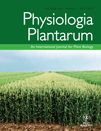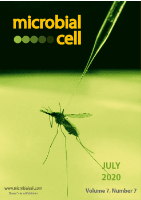
Cytology and Genetics
Scope & Guideline
Advancing Knowledge in Cytology and Genetics
Introduction
Aims and Scopes
- Molecular Genetics and Genomics:
Research focusing on the genetic basis of traits and diseases, utilizing techniques such as genome sequencing, polymorphism analysis, and gene expression profiling. - Cytology and Cell Biology:
Studies investigating the structure, function, and behavior of cells, including cytogenetic analyses, cellular responses to stress, and cellular mechanisms in health and disease. - Plant Genetics and Biotechnology:
Research on genetic traits in plants, including studies on genetic engineering, stress responses, and breeding for improved traits in crops. - Human Genetics and Disease:
Investigations into genetic variations associated with diseases, including cancer research, genetic disorders, and the role of epigenetics in health. - Environmental and Ecological Genetics:
Research examining the genetic adaptation of organisms to environmental changes, including studies on plant resilience to abiotic stresses and microbial interactions.
Trending and Emerging
- Precision Medicine and Cancer Genomics:
An increasing number of studies are focusing on the genetic underpinnings of cancer, exploring targeted therapies and the role of genetic variants in treatment responses. - Plant Stress Responses and Resilience Mechanisms:
Research investigating the molecular mechanisms underlying plant responses to abiotic stresses, such as drought and salinity, is gaining traction, reflecting the need for sustainable agricultural practices. - Bioinformatics and Computational Biology:
The use of bioinformatics tools for analyzing genomic data and predicting gene functions is becoming more prevalent, highlighting the integration of computational methods in genetic research. - Microbiome and Host Interactions:
Emerging studies are exploring the genetic interactions between hosts and their microbiomes, with implications for health, disease, and ecological dynamics. - Gene Editing Technologies:
Research utilizing CRISPR and other gene-editing technologies is on the rise, as scientists explore their potential applications in agriculture, medicine, and synthetic biology.
Declining or Waning
- Traditional Cytogenetics:
Research specifically centered on classical cytogenetic techniques, such as karyotyping and chromosomal abnormality assessments, has decreased as newer molecular techniques gain prominence. - Basic Plant Morphology:
Studies focused solely on descriptive plant morphology are becoming less common, as the field shifts towards more integrative approaches that combine genetics and molecular biology. - Invasive Species Genetics:
Research on the genetic aspects of invasive species is less frequently published, possibly due to the growing focus on native species conservation and ecological genetics.
Similar Journals

CURRENT GENOMICS
Fostering innovation in the realm of genomics.CURRENT GENOMICS is a premier journal published by Bentham Science Publishers that focuses on the expansive field of genomics, including both clinical and molecular genetics. With the ISSN 1389-2029 and E-ISSN 1875-5488, this esteemed journal has been disseminating significant scientific insights since its inception in 2000 and continues to contribute to the field through 2024. Based in the United Arab Emirates, CURRENT GENOMICS boasts a Q3 ranking in both the genetics and clinical genetics categories for 2023, reflecting its growing impact in the scientific community. Although not an open-access journal, it provides valuable content that supports researchers and professionals in navigating the complexities of genetic research and its applications. By publishing original research articles, reviews, and case studies, CURRENT GENOMICS aims to foster a deeper understanding of genomic science and its implications for medicine, thus playing a critical role in the advancement of genetics and biomedical research.

AGING CELL
Unlocking the Secrets of Aging at the Cellular LevelAGING CELL is a premier peer-reviewed journal published by Wiley, specializing in the rapidly evolving field of aging research and cell biology. Established in 2002 and enjoying an impressive track record as evidenced by its Q1 ranking in both Aging and Cell Biology categories for 2023, the journal has become a vital resource for researchers and professionals alike. With a significant impact factor highlighting its scholarly influence, AGING CELL offers an open access model since 2014, ensuring that groundbreaking research is accessible to the global community. The journal covers a wide array of topics related to the mechanisms of aging at the cellular and molecular levels, making it essential reading for anyone invested in understanding the complexities of aging processes and their implications for health and disease. With a broad international readership based in the United Kingdom and beyond, AGING CELL is dedicated to disseminating high-quality research that impacts scientific understanding and fosters advances in the field.

PHYSIOLOGIA PLANTARUM
Elevating Understanding of Plant Functions and ResponsesPHYSIOLOGIA PLANTARUM, published by WILEY, is a prestigious journal in the fields of plant science, physiology, and genetics, known for its impactful contributions since its inception in 1948. With an impressive impact factor and a consistent ranking in the Q1 and Q2 quartiles, it stands out in critical disciplines such as cell biology and biochemistry, ranking #24 in Plant Science with a remarkable 95th percentile standing. This journal primarily serves researchers and professionals committed to advancing the understanding of plant functions, responses, and their molecular mechanisms. Its broad scope allows for a diverse array of studies, ensuring that groundbreaking research is accessible to the global scientific community. Although it does not offer Open Access, PHYSIOLOGIA PLANTARUM remains a vital resource for scholars looking to stay at the forefront of plant biology and related fields.

Molecular Genetics Microbiology and Virology
Exploring the Intersections of Genetics and MicrobiologyMolecular Genetics Microbiology and Virology is an esteemed academic journal published by PLEIADES PUBLISHING INC, specializing in the complex interplay of genetics, microbiology, and virology. Established in 2007, this journal serves as a crucial platform for researchers and professionals committed to advancing our understanding of infectious diseases and molecular biology. Despite its current categorization in Q4 across several fields, the journal aims to evolve and foster significant discourse within the scientific community. While not an open access journal, it provides essential insights and high-quality research articles that contribute to the body of knowledge in molecular genetics and related disciplines. Located in the vibrant research landscape of New York, USA, the journal also encourages new submissions that address cutting-edge research topics and emerging trends in infectious diseases, thereby appealing to both emerging scholars and seasoned experts alike.

GENES TO CELLS
Connecting Molecular Insights to Cellular DynamicsGENES TO CELLS is a distinguished peer-reviewed journal published by Wiley, offering valuable insights into the intricate world of cell biology and genetics. With an ISSN of 1356-9597 and an E-ISSN of 1365-2443, this journal has been contributing to the academic community since its inception in 1996 and will continue its publishing journey until 2024. Recognized with a category quartile ranking of Q3 in both Cell Biology and Genetics, and Q2 in Medicine (Miscellaneous) as of 2023, it serves as an important platform for disseminating innovative research and reviews in molecular biology and related fields. Although it does not currently offer open access, the journal caters to a diverse readership by providing comprehensive studies that are essential for professionals, researchers, and students aiming to deepen their understanding of genetic mechanisms and cellular functions. Situated in the United Kingdom, GENES TO CELLS continues to play a pivotal role in shaping the future of biological research.

Microbial Cell
Exploring the dynamic world of microbiology and beyond.Microbial Cell is a distinguished open-access journal published by SHARED SCIENCE PUBLISHERS OG, focusing on the dynamic fields of microbiology, biochemistry, and molecular biology. Since its establishment in 2014, Microbial Cell has been at the forefront of disseminating cutting-edge research essential for advancing our understanding of microbial functions and interactions. With a commendable impact factor and ranking in the top quartiles (Q1 and Q2) across several categories, including Applied Microbiology and Biotechnology and Parasitology, this journal serves as an invaluable resource for researchers, professionals, and students alike. It features a comprehensive scope that encompasses the latest findings in genetics, cell biology, and virology, facilitating the academic community's access to high-quality peer-reviewed work. Microbial Cell not only contributes to advancing microbial sciences but also fosters an inclusive platform for knowledge sharing and collaboration in the scientific community.

Genes & Genomics
Transforming Understanding through Genetic BreakthroughsGenes & Genomics is a prominent academic journal dedicated to the fields of biochemistry, genetics, and molecular biology, published by Springer from South Korea. With an evolving focus on innovative genetic research and its implications, this journal serves as a crucial platform for disseminating knowledge within the scientific community. The journal has been indexed in Scopus and boasts a Q3 quartile ranking in 2023 for its contributions to these disciplines, highlighting its relevance and growing impact. In addition to traditional subscription options, Genes & Genomics supports Open Access, offering broader accessibility for researchers and enthusiasts eager to explore the latest advancements in genetic studies. Since its inception in 2008, the journal has committed to publishing high-quality research that drives forward our understanding of genetics and its applications, making it an essential resource for researchers, professionals, and students alike who are passionate about the complexities and breakthroughs in genomic sciences.

CYTOLOGIA
Pioneering Research in Animal and Plant BiologyCYTOLOGIA is a prominent academic journal published by University of Tokyo Cytologia, specializing in the fields of Animal Science, Plant Science, Cell Biology, and Genetics. With origins dating back to 1929, this journal has been at the forefront of cytological research and continues to contribute to advancements in both basic and applied sciences. As of 2023, it holds a respectable position in various Scopus categories, with a Q3 ranking in Animal Science and Zoology and Plant Science, alongside Q4 rankings in Genetics and Cell Biology, reflecting its dedication to quality research dissemination. While currently not an Open Access journal, CYTOLOGIA provides critical insights and findings that are pivotal for researchers, professionals, and students aiming to further their understanding of cytology and its applications in diverse biological fields. With a historical legacy and ongoing relevance, CYTOLOGIA remains a vital resource for anyone engaged in cutting-edge research or seeking comprehensive knowledge in the biological sciences.

RUSSIAN JOURNAL OF GENETICS
Uncovering the Mysteries of Heredity and VariationRUSSIAN JOURNAL OF GENETICS is a significant platform in the field of genetics, published by PLEIADES PUBLISHING INC since its inception in 1996. With an ISSN of 1022-7954 and an E-ISSN of 1608-3369, the journal focuses on a wide array of topics within genetics, providing researchers, professionals, and students with insights into advancements and discoveries in this ever-evolving discipline. While it currently holds a Q4 ranking in the 2023 Genetics category according to Scopus, representing invaluable opportunities for knowledge dissemination, the journal is actively working to enhance its impact in future rankings. Readers will find the journal a repository of diverse genetic research findings, methodologies, and theoretical advancements. Although it is not an open-access journal, it is committed to serving the academic community through rigorous peer-reviewed articles. With a consistent publication trajectory spanning to 2024, the RUSSIAN JOURNAL OF GENETICS remains a crucial resource for those aspiring to stay at the forefront of genetic research and applications.

JOURNAL OF BIOSCIENCES
Advancing the Frontiers of Biosciences ResearchJOURNAL OF BIOSCIENCES, published by the Indian Academy of Sciences, has established itself as a pioneering platform in the fields of biosciences, encompassing diverse research areas such as agricultural and biological sciences, biochemistry, genetics, molecular biology, and medicine. With an impressive trajectory since its inception in 1979, the journal has achieved notable recognition, securing a Q1 ranking in Agricultural and Biological Sciences and maintaining its place in the top quartiles for Biochemistry and Medicine as of 2023. With Scopus rankings placing it at #32 in General Agricultural and Biological Sciences and #65 in General Biochemistry, Genetics, and Molecular Biology, the journal reaches the 85th and 70th percentiles respectively, reflecting its impact and relevance in current scientific discourse. Although it does not offer open access, the JOURNAL OF BIOSCIENCES remains crucial for researchers, professionals, and students dedicated to advancing knowledge and innovation within the biosciences, providing a vibrant forum for high-quality research and comprehensive reviews.